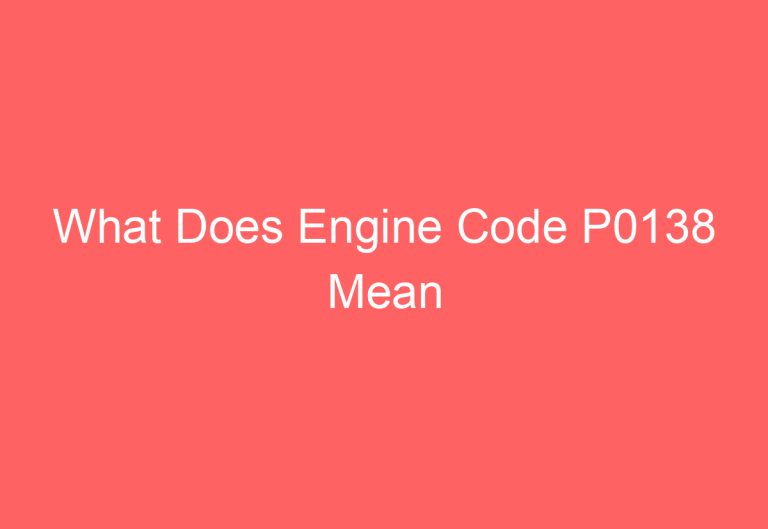Can Checking Engine Code Hurt Your Car [Revealed]
No, checking your car’s engine code will not damage your vehicle. In fact, it can help you identify potential problems and get them fixed before they cause serious damage.
So Can Checking Engine Code Hurt Your Car?
No, checking your car’s engine code will not damage your vehicle. In fact, it can help you identify and fix problems before they cause serious damage.
When your check engine light comes on, it means that there is a problem with your vehicle’s emissions system. By checking the code, you can find out what the problem is and take steps to fix it. This can save you time and money in the long run, as well as prevent more serious damage to your car.
Can Checking Engine Code Hurt Your Car?
Your car’s engine control unit (ECU) is a computer that monitors and controls various engine functions. When an engine problem occurs, the ECU stores a diagnostic trouble code (DTC) in its memory. This code can be retrieved using an OBD-II scanner, which is a device that plugs into your car’s diagnostic port.
What Does Checking Engine Code Do?
Checking your car’s engine code can help you identify the source of a problem. This information can be useful for troubleshooting the issue yourself or for taking your car to a mechanic.
Can Checking Engine Code Hurt Your Car?
No, checking your car’s engine code will not hurt your car. However, if you do not know what you are doing, you could damage your car by making a mistake. It is always best to have your car checked by a qualified mechanic if you are not sure what the problem is.
How to Check Engine Code?
To check your car’s engine code, you will need an OBD-II scanner. You can purchase an OBD-II scanner online or at most auto parts stores. Once you have the scanner, follow these steps:
1. Turn off your car’s engine.
2. Locate the diagnostic port on your car. It is usually located under the dashboard or near the driver’s side door.
3. Plug the OBD-II scanner into the diagnostic port.
4. Turn on the scanner.
5. The scanner will display the engine code(s).
What to Do If You Find a Trouble Code
If you find a trouble code, you can use a car repair manual or online resources to find out what the code means. Once you know what the code means, you can take steps to fix the problem.
Conclusion
Checking your car’s engine code can be a helpful way to identify potential problems. However, it is important to only use a qualified mechanic to interpret the codes and make repairs.
Also Read: Can Clogged Catalytic Converter Cause Pcm Engine Code
FAQs: Can Checking Engine Code Hurt Your Car?
Can checking engine code hurt my car?
No, checking your car’s engine code will not hurt it. In fact, it can help you identify and fix problems before they become more serious.
What is an engine code?
An engine code is a series of numbers and letters that are stored in your car’s computer. These codes indicate specific problems with your car’s engine.
How do I check my car’s engine code?
There are a few different ways to check your car’s engine code. You can use a code reader, which is a device that plugs into your car’s OBD-II port and reads the codes. You can also check your car’s engine code by using a smartphone app.
What do the different engine codes mean?
The meaning of each engine code varies depending on the make and model of your car. You can find a list of the engine codes for your specific car in your owner’s manual.
What should I do if I get a check engine light?
If you get a check engine light, it’s important to have your car checked by a qualified mechanic as soon as possible. The check engine light could indicate a serious problem with your car’s engine.


![Can Code 1456 Cause Engine To Stall [Clarified]](https://automotiveglory.com/wp-content/uploads/2024/05/can-code-1456-cause-engine-to-stall-clarified_6173-768x529.jpg)



